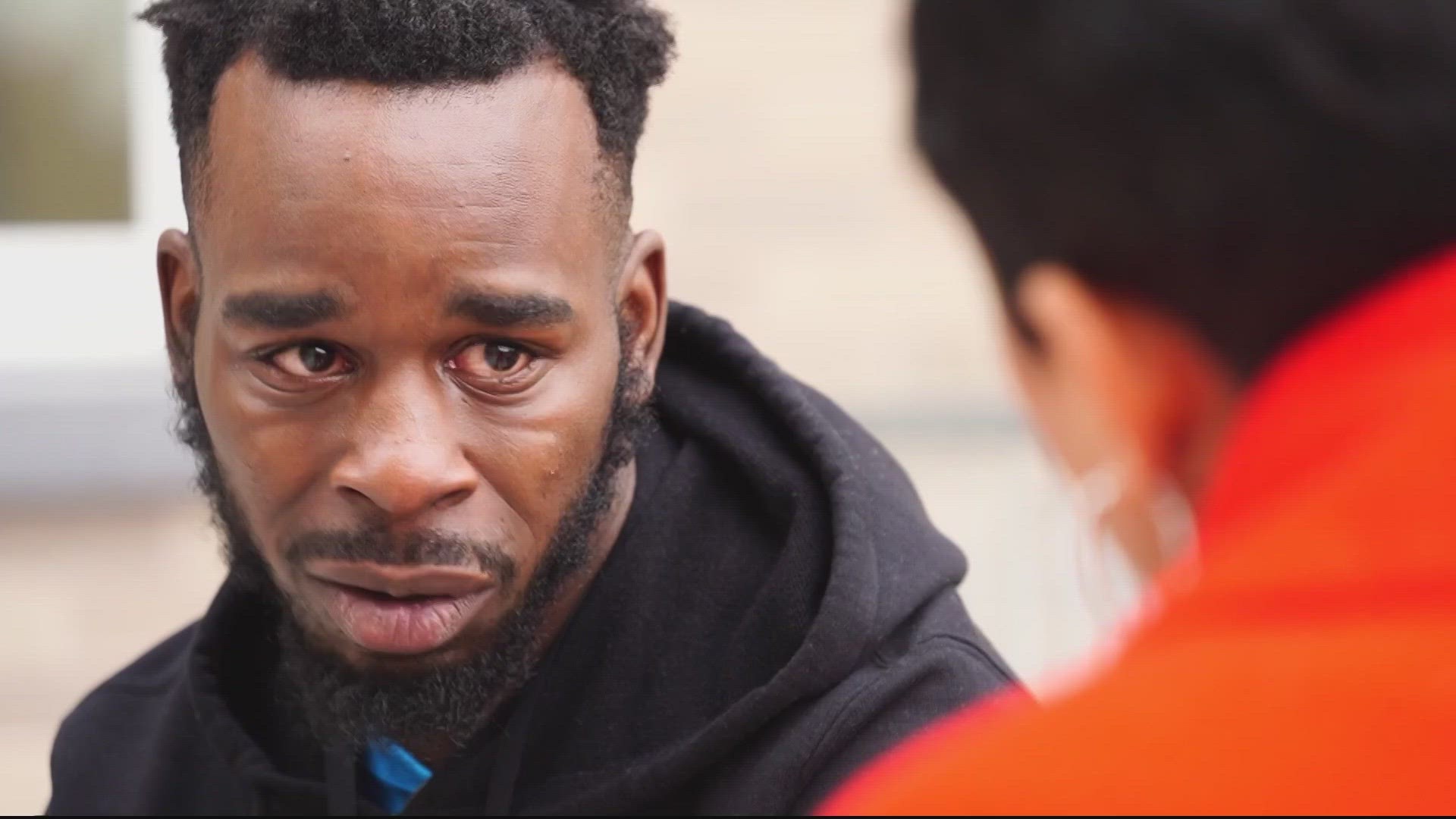WASHINGTON — We talk a lot about the increased violence in D.C. but some men who survived some of the worst life had to offer, provide hope, advice, and a pathway to success.
“A lot of my friends are gone so maybe I thought I was gonna be like them,” said Malik Gliss as he shrugged with tears in his eyes.
Gliss and Nokomis Hunter finally found a love for life.
“I’ve seen a lot of guys who did a lot of time like 15 or 20 years, went home and then came back in and didn’t want to end up like that,” added Hunter.
“You can’t say you love yourself and do things to hinder yourself or put yourself in harm’s way, so I can’t even say I loved myself at that time,” said Gliss. “I can say I love myself now.”
The men have turned their lives around thanks to Pathways: an intensive life skills and job training program through the Office of Neighborhood Safety and Engagement. Now, they hope to be positive role models to kids caught up in the streets.
“I know my role in the streets so I know my impact,” said Gliss. “If I choose to do wrong there are youngins behind me that's going to choose to do wrong. If I do right, I might change the narrative for the streets.”
“It’s most definitely discouraging [seeing the young people involved in violence] because when I see that, it always gives me flashbacks of the little boy I once was,” said Hunter. “I’ve been shot at, I’ve been shot.”
In and out of foster care, Hunter was just a month away from graduating from Spingarn High School in Northeast when he was found guilty of armed carjacking and sentenced to 10 years. He was just 16 years old.
“After I got sentenced and put on the van being transported to D.C. jail the first development that I saw in the city that was under construction was National’s Stadium. It wasn’t even built yet,” he said.
Hunter said he treated prison-like college, finding mentors behind bars and spent the next decade reading, writing, and learning as much as he could about becoming a man. But he still wasn’t quite prepared for life on the outside.
“When you come home you get scared,” he said. “I was scared when I got home.”
Now a father, the only jobs Hunter could land were at fast food restaurants. He admits, he was tempted to return to the streets to make money but he turned to his parole officer instead. She referred him to Pathways.
After landing a job at the Mayor’s office, Hunter has returned to ONSE. He’s now giving back to the same Pathways program that saved him.
“My journey is not just about me, it’s bigger than me because I can’t afford to make any mistakes or getting locked up or jeopardizing my freedom because I know there’s a lot of guys looking up to me,” said Hunter.
“You don’t have to look over your shoulder, you don’t have to worry about stick-up boys, the police, you can take the kids to school and not worry about the police pulling you over with something in the car,” said Gliss of his new-found freedom. “My kids saw me graduate!”
Gliss and his family have come a long way. Despite being a father, Sellers still found himself on the streets and served five years on a drug charge. He joined Pathways last August, just two months after his best friend Darius was killed.
“We was supposed to make a change together. He got a job and all that but we didn’t change our scenery,” he explained. “I was 29 years old and I was lost.”
For five years now, Pathways has helped rebuild returning citizens between 20 and 35 years old through a nine-week life skills and job training program, followed by six months of subsidized employment, with the goal of landing a career by the time you complete the program. Pathways has an 80% success rate and those who don’t finish often return after completing mental health or drug treatment.
“I look at Pathways like a filter in the community,” said Hunter. “Someone who’s looking for a second chance. Someone that has hope and looking for someone to basically invest into them.”
“That’s the number one thing – love,” said Gliss. “You gotta feel like the people around you want to see you win and I feel like a lot of programs outside of Pathways haven’t been successful because people who run the program are all about a dollar. The people at Pathways tell you I’m all about you and you see it.”

